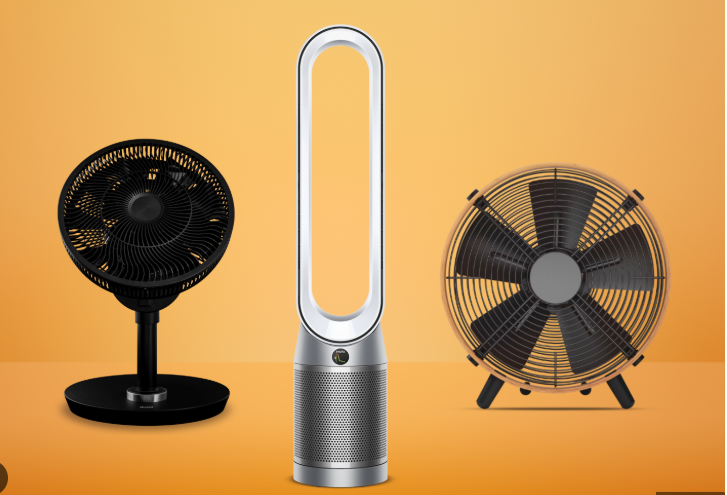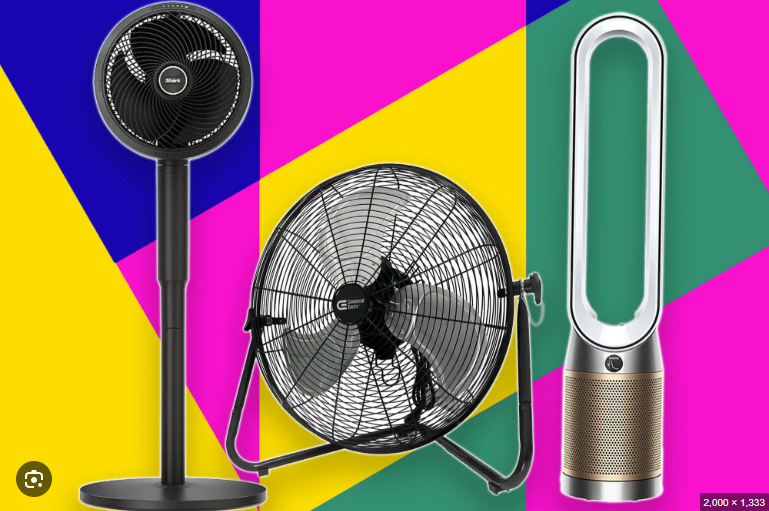If you’ve ever asked yourself, “Why is my electric fan noisy?” you’re not alone. A noisy electric fan can be frustrating, especially when you’re relying on it to keep cool. Whether it’s a rattling, buzzing, or grinding sound, there are several reasons your electric fan might be making noise. In this guide, we’ll explore the common causes of a noisy electric fan, provide practical electric fan troubleshooting tips, and share advice on maintenance to keep your fan running smoothly. Let’s dive into the world of electric fans and uncover how to silence that distracting noise!
Common Reasons Your Electric Fan Is Noisy
Electric fans are designed to operate quietly, but over time, various issues can lead to unwanted sounds. Understanding the root cause is the first step in electric fan troubleshooting. Here are the most common reasons why your electric fan might be noisy:
1. Accumulated Dust and Debris
One of the primary culprits behind a noisy electric fan is dust buildup. Dust and debris can collect on the blades, motor, or grille, causing the fan to work harder and produce rattling or buzzing noises. Regular electric fan cleaning is essential to prevent this issue. If your fan hasn’t been cleaned in a while, the accumulated dirt might be the reason it’s making noise.
2. Loose Parts or Screws
Another common issue is loose screws or components. Over time, vibrations from the fan’s operation can loosen screws, blades, or other parts, leading to rattling or humming sounds. Checking and tightening these parts is a simple fix that can make a big difference in reducing noise.
3. Worn-Out Bearings or Motor Issues
The motor is the heart of your electric fan, and worn-out bearings or a failing motor can cause grinding or whining noises. This is more common in older fans or those that have been heavily used without proper electric fan maintenance. If the motor is the issue, you may need to consider repair or replacement.
4. Improper Electric Fan Setup
An improper electric fan setup can also lead to noise. For example, if the fan is placed on an uneven surface or isn’t properly assembled, it may vibrate excessively, creating rattling or buzzing sounds. Ensuring your fan is set up correctly is a key step in troubleshooting.
5. Blade Imbalance or Damage
Damaged or unbalanced blades can cause your fan to wobble or produce a humming noise. This issue is common in portable electric fans that are frequently moved or accidentally bumped. Inspecting the blades for damage or misalignment can help identify the problem.

How to Diagnose a Noisy Electric Fan
Before you can fix a noisy electric fan, you need to pinpoint the cause. Follow these electric fan troubleshooting steps to diagnose the issue:
- Listen to the Type of Noise: Different noises indicate different problems. A rattling sound might suggest loose parts, while a grinding noise could point to motor issues. Pay attention to when the noise occurs (e.g., only at high speeds or continuously).
- Check for Vibrations: Place your hand on the fan to feel for excessive vibrations. Vibrations often indicate loose components or an unbalanced base.
- Inspect the Blades: Look for visible damage, bends, or dirt buildup on the blades. Even a small imbalance can cause significant noise.
- Test on a Flat Surface: Place the fan on a stable, flat surface to rule out an uneven setup as the cause of the noise.
- Run at Different Speeds: Test the fan at various speed settings. If the noise changes or only occurs at certain speeds, it could indicate motor or blade issues.
By systematically checking these areas, you can narrow down the cause of the noise and take appropriate action. For more detailed guidance on diagnosing fan issues, check out this cooling guide.
How to Fix a Noisy Electric Fan
Once you’ve identified the cause of the noise, it’s time to fix it. Here are some practical solutions to address common issues with a noisy electric fan:
1. Clean Your Electric Fan
Electric fan cleaning is one of the easiest and most effective ways to reduce noise. Dust and debris can cause the fan to work harder, leading to vibrations and noise. Here’s how to clean an electric fan safely:
- Turn off and unplug the fan to ensure electric fan safety.
- Remove the front grille (consult your fan’s manual for instructions).
- Use a soft brush or cloth to gently clean the blades, removing dust and debris.
- Wipe down the motor housing and grille with a damp cloth.
- Allow all parts to dry completely before reassembling.
Regular cleaning not only reduces noise but also improves the fan’s performance and lifespan. Aim to clean your fan every 3–6 months, depending on usage.
2. Tighten Loose Parts
If loose screws or parts are causing the noise, a quick inspection can resolve the issue. Use a screwdriver to check and tighten any loose screws on the grille, base, or blade assembly. Be careful not to overtighten, as this can damage the components.
3. Balance the Blades
If the blades are unbalanced, you can try rebalancing them. Some fans come with balancing kits, or you can purchase blade balancing clips online. Alternatively, check for debris or damage on the blades and replace them if necessary. Balanced blades are crucial for smooth, quiet operation.
4. Lubricate the Motor
A noisy motor might need lubrication. Check your fan’s manual to see if the motor bearings are serviceable. If so, apply a small amount of lubricant (such as machine oil) to the bearings. Be cautious not to over-lubricate, as excess oil can attract dust and worsen the problem.
5. Check the Electric Fan Setup
Ensure your electric fan setup is correct. Place the fan on a flat, stable surface to minimize vibrations. If you’re using a portable electric fan, make sure it’s not wobbling or tilting. Double-check that all parts are securely assembled according to the manufacturer’s instructions.
6. Replace Worn-Out Parts
If the motor or bearings are worn out, you may need to replace them. For older fans, it might be more cost-effective to invest in a new fan rather than repairing the motor. If you’re unsure, consult a professional or refer to electric fan maintenance guides for advice.
Electric Fan Maintenance Tips to Prevent Noise
Preventing noise in the first place is easier than fixing it. Here are some electric fan tips to keep your fan quiet and efficient:
- Schedule Regular Cleaning: Clean your fan every few months to prevent dust buildup.
- Store Properly: When not in use, store your fan in a dry, dust-free environment to protect the motor and blades.
- Check for Wear: Periodically inspect the blades, motor, and screws for signs of wear or damage.
- Use Correctly: Avoid running the fan at maximum speed for extended periods, as this can strain the motor.
- Follow Safety Guidelines: Always follow electric fan safety practices, such as unplugging the fan before cleaning or maintenance.
By incorporating these electric fan maintenance habits, you can extend the life of your fan and keep it running quietly.

When to Replace Your Electric Fan
Sometimes, a noisy electric fan is a sign that it’s time for a replacement. If you’ve tried all the troubleshooting steps and the noise persists, or if the fan is old and inefficient, consider upgrading to a new model. Modern fans are designed to be quieter and more energy-efficient, making them a worthwhile investment. For help choosing a new fan, check out this best electric fan guide for recommendations.
Electric Fan Safety Tips
While troubleshooting and maintaining your fan, always prioritize electric fan safety. Here are some key tips:
- Always unplug the fan before performing any maintenance or cleaning.
- Avoid using the fan near water or in damp environments to prevent electrical hazards.
- Keep the fan out of reach of children and pets to avoid accidents.
- Ensure the fan is stable and secure to prevent it from tipping over.
Conclusion: Keep Your Electric Fan Quiet and Efficient
A noisy electric fan doesn’t have to disrupt your comfort. By understanding the common causes—such as dust buildup, loose parts, or motor issues—you can effectively troubleshoot and fix the problem. Regular electric fan cleaning, proper electric fan setup, and consistent electric fan maintenance are key to keeping your fan quiet and efficient. Whether you’re using a portable electric fan or a larger model, these electric fan tips will help you enjoy a cool, peaceful environment.
If you’re still struggling with a noisy fan or want to explore the best options for a new one, visit electricfanatic.com for expert advice and resources. With the right care and attention, your electric fan can provide reliable, quiet cooling for years to come!